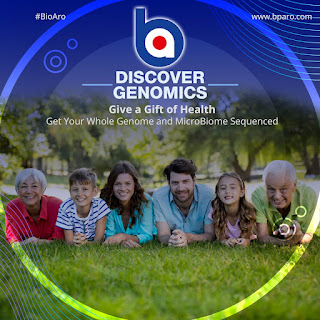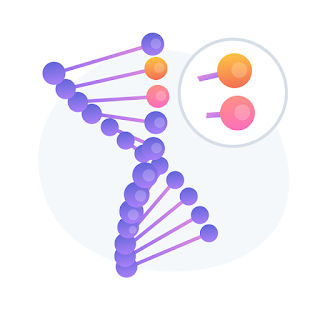Exome And Genome Sequencing || BioAro
Behavioral genomics is the science which explains why humans behave the way they do. People have argued for centuries that a man’s nature is determined by his birth. At the same time, there are also those who believe that the environment around us have an equal impact on human nature. Nature vs Nurture was the debate that gave life to this branch of science early in the 1900s.
History
Sir Francis Galton, a pioneer in this field, initiated the first ever evidence based studies on behavioral genomics to find out if genes determine our actions and abilities or if the environment we live in has an influence on them. Sir Galton was a cousin of the more popularly known scientist, Charles Darwin. He studied behaviors of genetically identical twins raised in different environments since birth.
Galton’s studies proved that there were innate abilities one acquires and retains since birth that can stay with them regardless of the surroundings they are brought up in. since then, a lot of studies have been conducted that have given us more insight into how genetics and environment influence human behavior. Current theories are more of the belief that both factors play equally important roles in how we act and react in a circumstance.
To have a little back history on genetics, let us look at some facts here. The term genetics was first coined in the year 1903 and it took another 50 years before which we were able to determine the double helical structure of a human DNA. In 1996, the genetic codes G, A, T, C were identified which formed the founding structure of the amazing discoveries made to date in the human genome sequencing project.
At Present
Common behavioral disorders studied in families, twins and adopted individuals have shone light on the significance of environment in a person’s life as much as his genes. Scientists have been trying to decode the human genome for decades and are much closer now to cracking it open completely. The genome sequencing project has unveiled a number of genes that are responsible for complex behavioral traits and psychiatric disorders that were previously unexplained. The project is now being pursued not just with the goal of identification of the human genes but also to understand their functions and the extent of influence on a person’s behavior.
Candidate Gene Approach
In 2005, Fitzpatrick et
al studied the presence of a
particular allele in candidates who exhibited a particular behavioral characteristic compared to persons who did not. This method of study is
popularly known as the “Candidate gene” approach where the selected gene is the
candidate. The chosen gene is usually one that is known to have caused a
pathological condition or responsible for behavioral patterns in various
species including humans. Following gene selection, both sets of individuals
are observed for the gene’s expression pattern.
Genome sequencing is being done for various other species other than humans that help us understand and follow an unbiased approach to the adaptive behaviors we see among us. We have been able to associate social interactions and their lack among certain individuals to genetic expression as well.
Genomics in Behavioral and Physical Disorders
We all know the link between genes and diseases. These diseases and behavior traits are not influenced by a single gene. Single gene disorders (where mutations occur in a single gene) are extremely rare compared to complex, multiple trait conditions in humans. These cause the inherited psychiatric disorders due to changes in the behavioral phenotypes. Linkage mapping and other such modern genome association techniques aid in studies of inheritable behaviors among twins.
These studies have been valuable in determining the adaptive behaviors in humans and other species like reproduction, hunting, mating, foraging, etc. and how they are inherited through generations. From the conclusions obtained from these studies, scientists have theorized and effectively proved the roles of genes in diseases and behavioral disorders inherited in the offspring.
Mental health disorders involving impaired perceptions, lack in comprehensive skills or social skills, etc. have been proved to be a result of gene alterations on single or multiple alleles. Genomic tools help study these changes, understand them and associate genetic variants. Different genetic variants cause different symptoms and signs among individuals with the same behavioral or psychiatric disorder.
Improved Quality Of Life
Proper understanding of these conditions have led us to provide these people with better care and thus improved their quality of life. Behavioral genetics has moved on to becoming behavioral genomics and will be helping us enhance our interpretation of the human brain. The field is vast with limitless scope for research as what we have unearthed remains a grain of sand in a desert.
Path For A Brighter Future
Behavioral genomics also gives us the hope that human race can still redeem itself as genes are only a part of the whole. The effect of environment on identical human beings and how it can influence an individual with similar genetic makeup to adapt different behaviors have shed light on a world of possibilities for people in need of rehabilitation physically and mentally.
Conclusion
For centuries before genetics was birthed, modern science stumbled through the years without real understanding or explanation for any of the ailments humans and animals suffered. The last century has seen an enormous leap in the field of science which has been possible only by the evidence we have gained through intensive studies conducted on genetics and inheritance of genome exome sequencing and diseases. Physical conditions are being treated now by doctors with more knowledge on what actually goes on in the molecular level. Psychiatric conditions and behavioral disturbances that are a current predicament among the population of the world in general are also being benefitted from the results we have gained from genomic studies. Psychiatrists and psychologists are now treating patients with the new knowledge of how both genes and environment can manipulate a person’s mental health and behavior.
Get more information
Please visit us :- https://bioaro.com/
follow on us
Facebook :- https://www.facebook.com/BioAroinc/
Twitter :- https://twitter.com/bioaroinc
LinkedIn :- https://www.linkedin.com/company/bioaroinc




Comments
Post a Comment